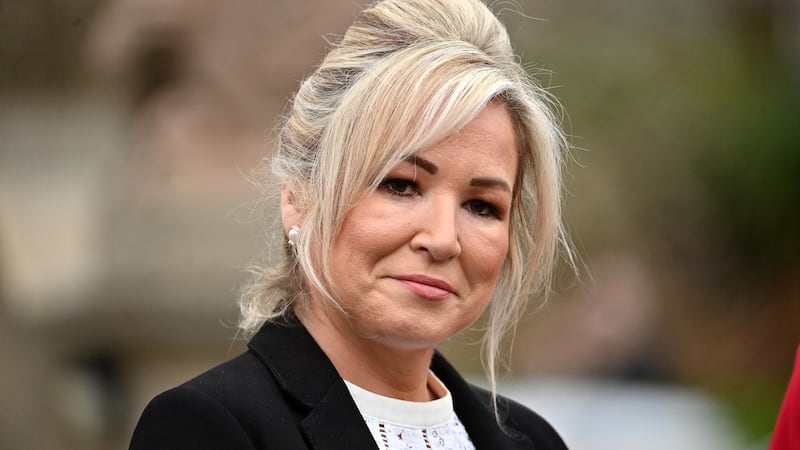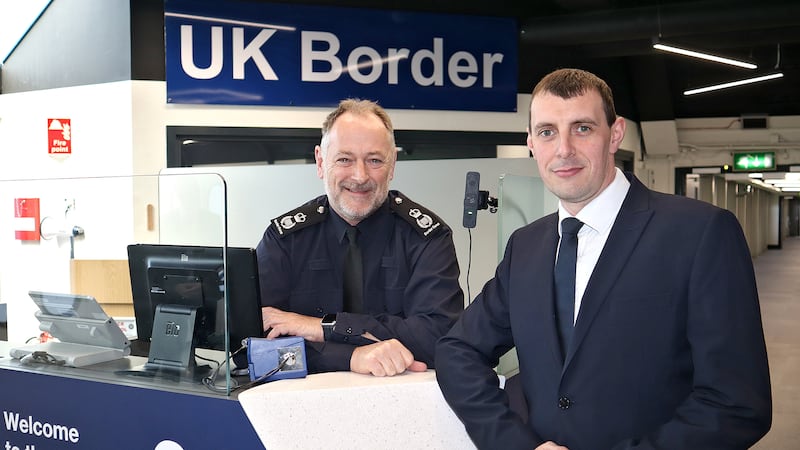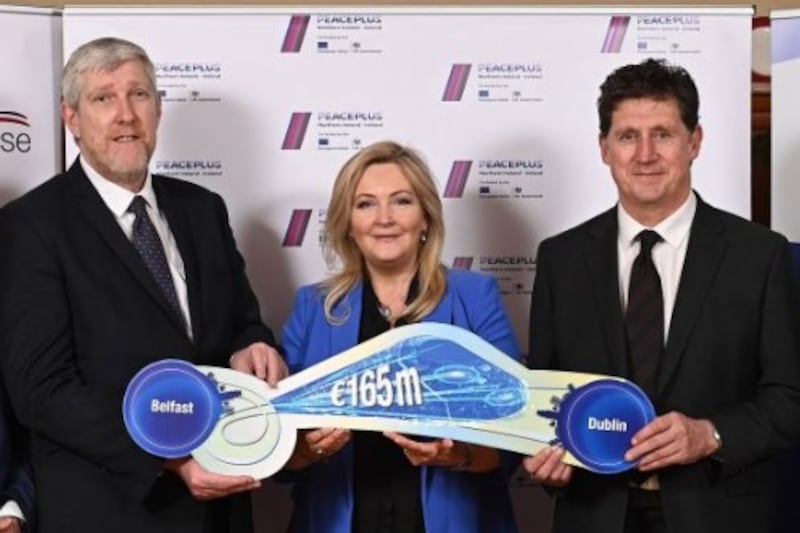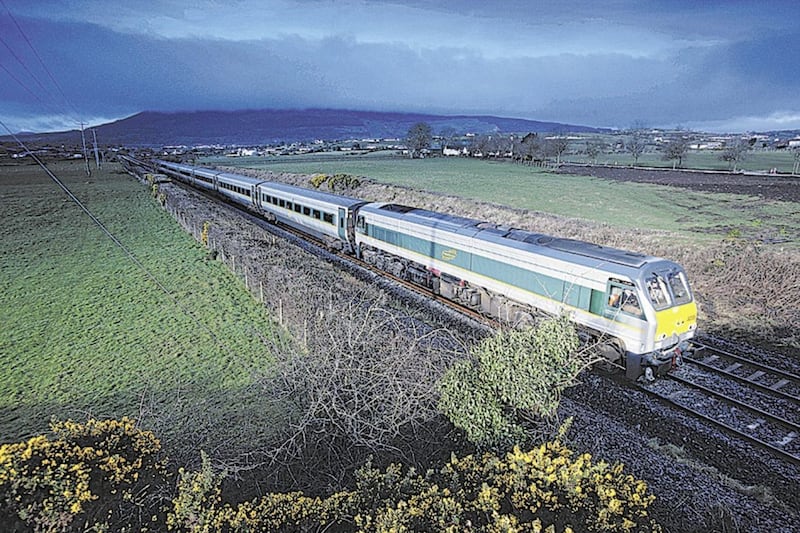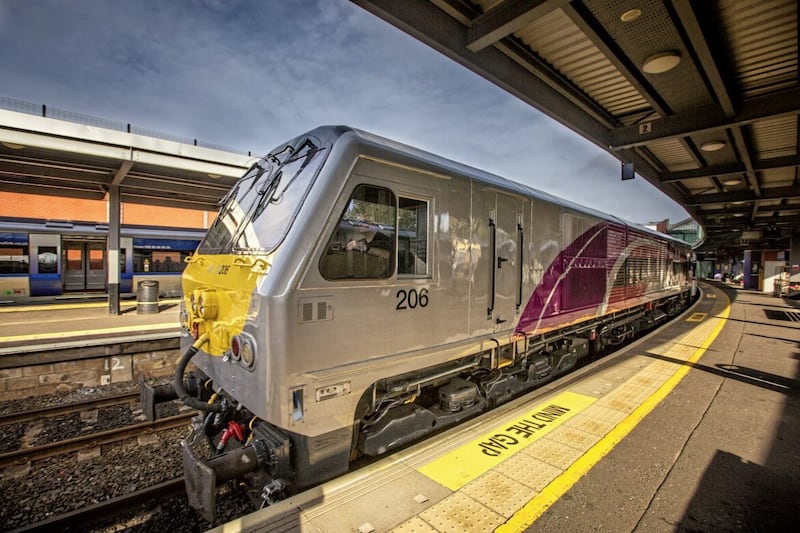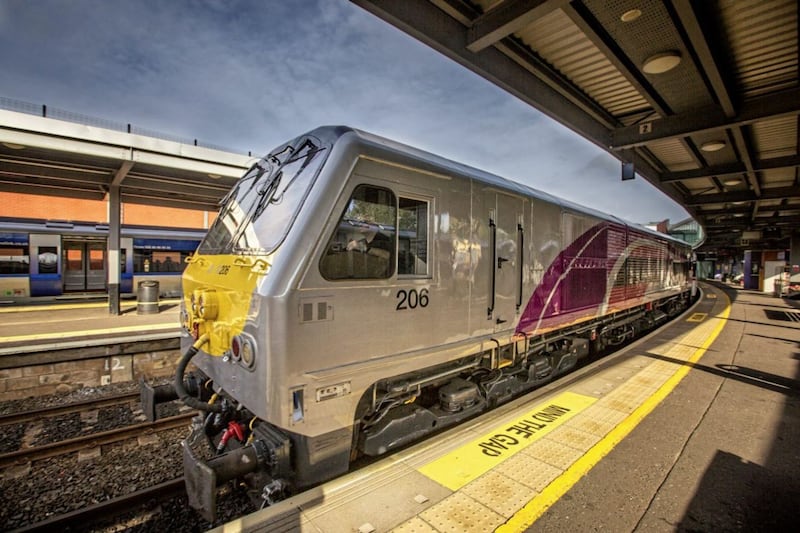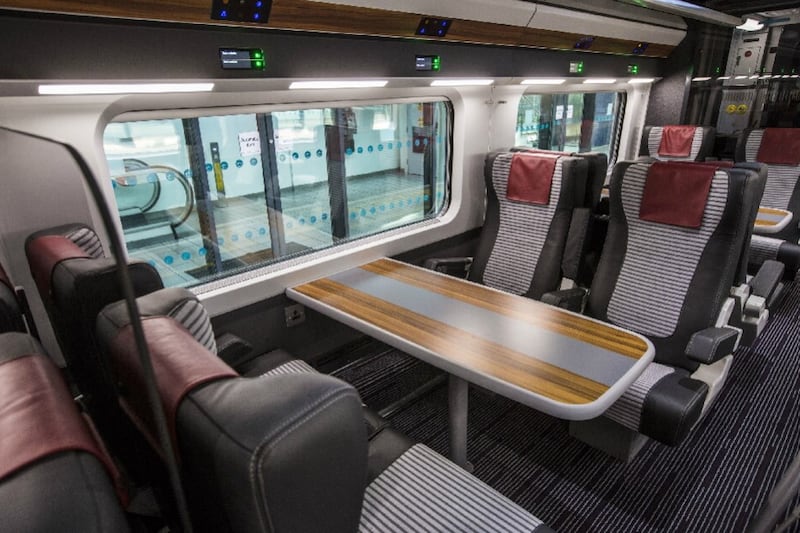Future train journey times between Belfast and Dublin will fail to match those of 25 years ago despite a multi-million-pound investment in cross-border rail services.
More than £140m of Peace Plus funds is to be spent on a major programme that it’s claimed will “transform” the Enterprise service and pave the way for an hourly service between Belfast and the capital.
In addition to eight new trains that will support net zero carbon targets, it is hoped the new service, scheduled to be operational by 2029, will reduce travel times between Ireland’s two biggest cities by around 25 minutes to 1 hr 55 mins.
In February, the Irish government earmarked funding of €12.5million (£10.68m) towards creating the hourly train service, which would double the current frequency.
However, the target time will still be slower than a service that operated for a number of years from the late 1990s, and only 20 minutes faster than the inaugural service launched in 1947. Unlike the faster service of the past though, the upgraded service will stop at Portadown, Newry, Dundalk and Drogheda.
Dublin and Belfast’s two main train stations are approximately 111 miles apart, with an average car journey taking 1 hr 53 mins.
The current fastest rail service takes 2 hrs 5 mins.
The distance between Dublin and Cork is longer by more than half yet the fastest train journey between the two cities is 2 hr 14 mins.
The train between Paris and Brussels (164 miles) takes 1 hr 31 mins, while travelling to from London to Birmingham (100 miles) on the fastest rail service takes1h 13m.
SDLP infrastructure spokesperson Mark H Durkan welcomed the investment, saying it would “make a real difference to the thousands of people who rely on this service”.
However, the Foyle MLA said it was clear there was “some way to go to see the necessary improvements to rail infrastructure across this island”.
He referenced the All-Island Rail Review jointly commissioned by former Stormont infrastructure minister Nichola Mallon and its aim of a “high-speed rail networks that reflect the demands of modern life”.
“We need to aspire to faster rail links between not only Belfast and Dublin, which even after these improvements will fall short of a quarter of a century ago, but also between Derry and Dublin and all of our major population centres,” Mr Durkan said.
Translink, which operates the northern section of the Belfast-Dublin line, welcomed the funding, saying it would improve “accessibility and passenger experience”.
It said the service in the late 1990s had a journey time of 2 hrs 10 mins when making all four stops using the same trains that remain in operation today, but when stopping only at Portadown, the journey time was 1 hr 51 mins.

